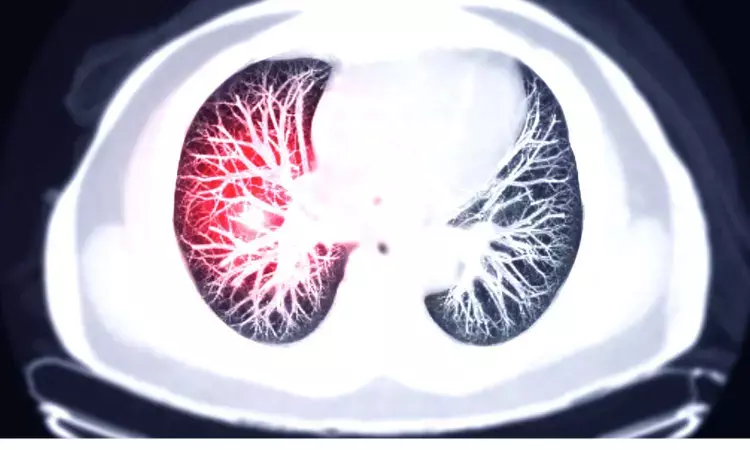- Home
- Medical news & Guidelines
- Anesthesiology
- Cardiology and CTVS
- Critical Care
- Dentistry
- Dermatology
- Diabetes and Endocrinology
- ENT
- Gastroenterology
- Medicine
- Nephrology
- Neurology
- Obstretics-Gynaecology
- Oncology
- Ophthalmology
- Orthopaedics
- Pediatrics-Neonatology
- Psychiatry
- Pulmonology
- Radiology
- Surgery
- Urology
- Laboratory Medicine
- Diet
- Nursing
- Paramedical
- Physiotherapy
- Health news
- Fact Check
- Bone Health Fact Check
- Brain Health Fact Check
- Cancer Related Fact Check
- Child Care Fact Check
- Dental and oral health fact check
- Diabetes and metabolic health fact check
- Diet and Nutrition Fact Check
- Eye and ENT Care Fact Check
- Fitness fact check
- Gut health fact check
- Heart health fact check
- Kidney health fact check
- Medical education fact check
- Men's health fact check
- Respiratory fact check
- Skin and hair care fact check
- Vaccine and Immunization fact check
- Women's health fact check
- AYUSH
- State News
- Andaman and Nicobar Islands
- Andhra Pradesh
- Arunachal Pradesh
- Assam
- Bihar
- Chandigarh
- Chattisgarh
- Dadra and Nagar Haveli
- Daman and Diu
- Delhi
- Goa
- Gujarat
- Haryana
- Himachal Pradesh
- Jammu & Kashmir
- Jharkhand
- Karnataka
- Kerala
- Ladakh
- Lakshadweep
- Madhya Pradesh
- Maharashtra
- Manipur
- Meghalaya
- Mizoram
- Nagaland
- Odisha
- Puducherry
- Punjab
- Rajasthan
- Sikkim
- Tamil Nadu
- Telangana
- Tripura
- Uttar Pradesh
- Uttrakhand
- West Bengal
- Medical Education
- Industry
Catheter-Directed Therapies may be Safer option for Frail elderly Patients with Pulmonary Embolism

The safety of reperfusion therapies, particularly catheter-directed therapies, for elderly and frail patients with pulmonary embolism (PE) is a subject of paramount concern. In light of recent findings, it has become increasingly evident that these innovative approaches offer a more secure alternative to classical reperfusion therapies in the management of PE among vulnerable populations.
The study was published in the EuroIntervention.
Reperfusion therapy, a vital intervention for patients with pulmonary embolism (PE), presents unique challenges when applied to elderly and frail individuals. In cases where systemic thrombolysis (ST) is contraindicated or has proven ineffective, catheter-directed therapies offer a promising alternative. However, the safety and efficacy of these innovative approaches in specific vulnerable populations have remained largely unexplored. Hence researchers conducted a study to assess the safety of reperfusion therapies in elderly and frail patients in the real world.
The research leveraged data from the US Nationwide Inpatient Sample collected between 2016 and 2020. The study focused on hospitalizations of patients aged 65 and above who were diagnosed with PE. Among this cohort, a subgroup classified as frail was identified using the Johns Hopkins Adjusted Clinical Groups frailty-defining diagnosis indicator. The primary objective was to assess the utilization of reperfusion therapies, including systemic thrombolysis (ST), catheter-directed thrombolysis (CDT), catheter-based thrombectomy (CBT), and surgical embolectomy (SE), and their associated safety outcomes, specifically overall and major bleeding events.
Key findings:
- The study encompassed 9,80,245 hospitalizations of patients aged 65 and above with PE, with 28.0% classified as frail.
- Among this population, reperfusion therapies were employed in 4.9% of cases, rising to 17.6% among patients with high-risk PE.
- Notably, while ST utilization remained consistent, the use of catheter-directed therapies surged from 1.7% in 2016 to 3.2% in 2020.
- Comparing the safety outcomes of reperfusion therapies, it was observed that CDT, when compared to ST, was linked to a reduction in major bleeding events (5.8% vs. 12.2%, odds ratio [OR] 0.58, 95% confidence interval [CI]: 0.49-0.70).
- Importantly, these findings held true for frail patients as well.
- In addition, CBT, as opposed to SE, was associated with a decreased incidence of major bleeding (11.0% vs. 22.4%, OR 0.63, 95% CI: 0.43-0.91), although this advantage was not evident among frail patients.
- These differences were particularly significant among patients with non-high-risk PE. Similar trends were observed for overall bleeding events.
Thus, this study provides compelling evidence that catheter-directed therapies may represent a safer alternative to conventional reperfusion therapies for elderly and frail patients in need of reperfusion treatment for pulmonary embolism. These findings have significant implications for improving the safety and efficacy of PE management in these vulnerable populations, offering hope for better outcomes and enhanced patient care.
Further reading: A nationwide analysis of reperfusion therapies for pulmonary embolism in older patients with frailty. DOI: 10.4244/EIJ-D-23-00399
BDS, MDS
Dr.Niharika Harsha B (BDS,MDS) completed her BDS from Govt Dental College, Hyderabad and MDS from Dr.NTR University of health sciences(Now Kaloji Rao University). She has 4 years of private dental practice and worked for 2 years as Consultant Oral Radiologist at a Dental Imaging Centre in Hyderabad. She worked as Research Assistant and scientific writer in the development of Oral Anti cancer screening device with her seniors. She has a deep intriguing wish in writing highly engaging, captivating and informative medical content for a wider audience. She can be contacted at editorial@medicaldialogues.in.
Dr Kamal Kant Kohli-MBBS, DTCD- a chest specialist with more than 30 years of practice and a flair for writing clinical articles, Dr Kamal Kant Kohli joined Medical Dialogues as a Chief Editor of Medical News. Besides writing articles, as an editor, he proofreads and verifies all the medical content published on Medical Dialogues including those coming from journals, studies,medical conferences,guidelines etc. Email: drkohli@medicaldialogues.in. Contact no. 011-43720751




